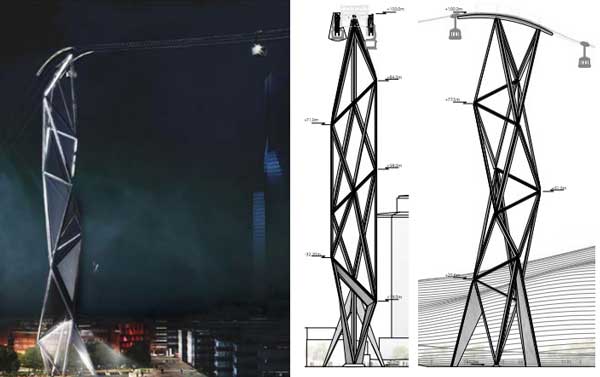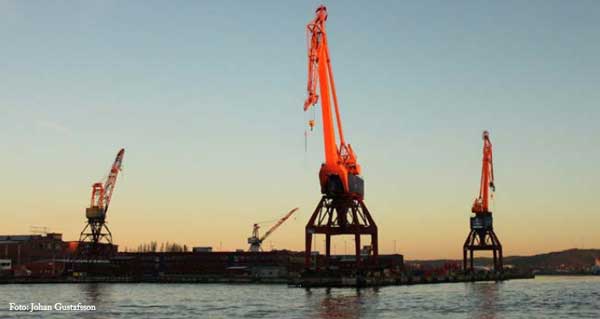Sweden’s first urban gondola, the Gothenburg Cable Car, is one step closer to realization. The US$137 million (SEK 1.1 billion) system will mark the first time a new mode of public transport is introduced in the country since Stockholm’s subway was built in 1930.
The proposal, which started in 2013, set off on a design competition in June 2017 where several teams were invited to submit their concepts. To up the stakes and sweeten the pot, selected participants were compensated US$50,000 (SEK 400,000) for their submissions while the winner won a cool US$125,000 (SEK 1,000,000).
After careful deliberation and several rounds of public consultations, the team made up of the Amsterdam-based UNStudios and Gothenburg-based, Kjellgren Kaminsky Architecture were chosen as the winners. The jury’s decision was guided by a competition brief and four main principles:
- Architectural quality and design
- Function, logistics, and accessibility
- Feasibility and development potential
- Sustainability: economic, administrative, environmental and social
While the cable car has been proposed as a four station system with six towers, the committee tasked the participants to develop generic concepts for just an intermediate station, an end station, system lighting and two towers (65m and 100m). The City wanted the architects and engineers to develop a plan where the proposal had flexibility to be revised in the detailed design stage but without losing its core concept.
The winning concept, known as New Beacons, was ultimately chosen as the jury described it as a, “sensitively presented proposal that combines poetry and playfulness with flexibility and development potential.” The jury made specific comments on the towers ability to reference Gothenburg’s history as a working harbour and how the stations were designed with ecological sustainability in mind.

Conceptual tower design may be constructed with fiber reinforced spun concrete or steel section with hollow cross section.
UNStudios will act as the project’s design consultant who will work alongside a team in a “turn-key” contract. A main contractor will be responsible for the final feasibility study, planning and construction of the cable car.
As strange as this may sound, while the competition is now over and a project contractor has been chosen (currently awaiting court ruling on an appeal), the project is technically not fully approved yet.
A feasibility study is underway and will not be complete until summer 2019. At the same time, the City Planning Authority is coordinating development plans to not only allow the construction and operation of the cable car but to determine how the cable car will interact with its surrounding environment.
Until then, the project team will have plenty of work ahead as Gothenburg City Council will make a final decision in June 2019 on whether or not they want to invest in and construct the cable car. If everything goes according to plan, project proponents hope to have the cable car up and running by the City’s 400th year celebrations in 2021.


